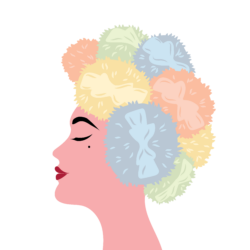Some people avoid mirrors like they hold secrets too cruel to confront. Others can’t seem to look away, as if more staring might eventually yield a version of themselves they can finally accept. At first glance, these behaviors seem like opposites—one rooted in self-neglect, the other in vanity or fixation. But under the surface, they might actually be neighbors. Different expressions of the same internal conflict: an unresolved relationship with the self.

Avoidance can feel like freedom, like refusing to let your reflection dictate your worth. But more often, it’s a kind of exile. A quiet resistance rooted in fear: If I don’t look, I don’t have to face what I’ve become. Or worse, what I’m afraid I’ll never be.
Obsession, on the other hand, masquerades as control. It says: If I can just fix this one thing—blend a little more, conceal a little better, sculpt just right—then maybe I’ll feel okay. It becomes a ritual of hyper-vigilance, watching our own face like it might betray us.
But both, in their extremes, reduce us to our appearance. Both are symptoms of disconnection—from self-compassion, from perspective, from the ability to hold beauty and imperfection in the same breath.

The mirror, after all, is not a villain. It’s a tool. But like any tool, it reflects not only our image but the emotional atmosphere we bring to it. A mirror in the hands of someone at peace will simply reflect a face. A mirror in the hands of someone at war with themselves will reflect every flaw, every failure, every false standard they’ve been taught to chase.
Here at F.A.C.E., we believe in reclaiming the mirror. Not to idolize it. Not to fear it. But to soften into it. To use it as a space of curiosity, not condemnation. Some days you might only glance. Other days you might linger. Neither is wrong. What matters is that you’re the one choosing the gaze, not being ruled by it.
Because when the mirror stops being a battlefield or a bypassed burden, it becomes what it was always meant to be—a witness. One that doesn’t speak, but listens. One that doesn’t judge, but reflects. And if we’re brave enough, we’ll look not just at the surface, but beyond it—into the part of us that’s learning to stay, learning to soften, learning to be seen without fear.
